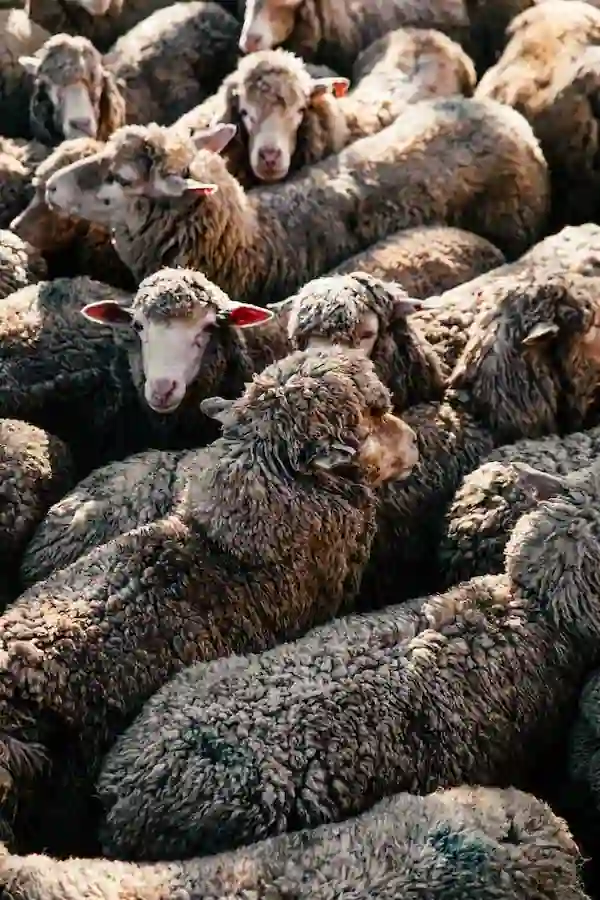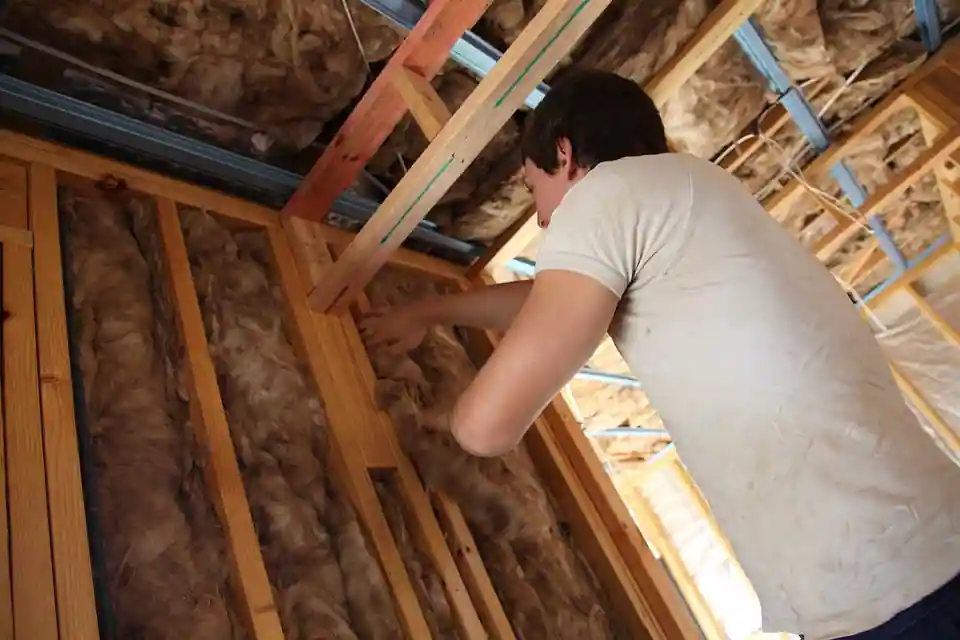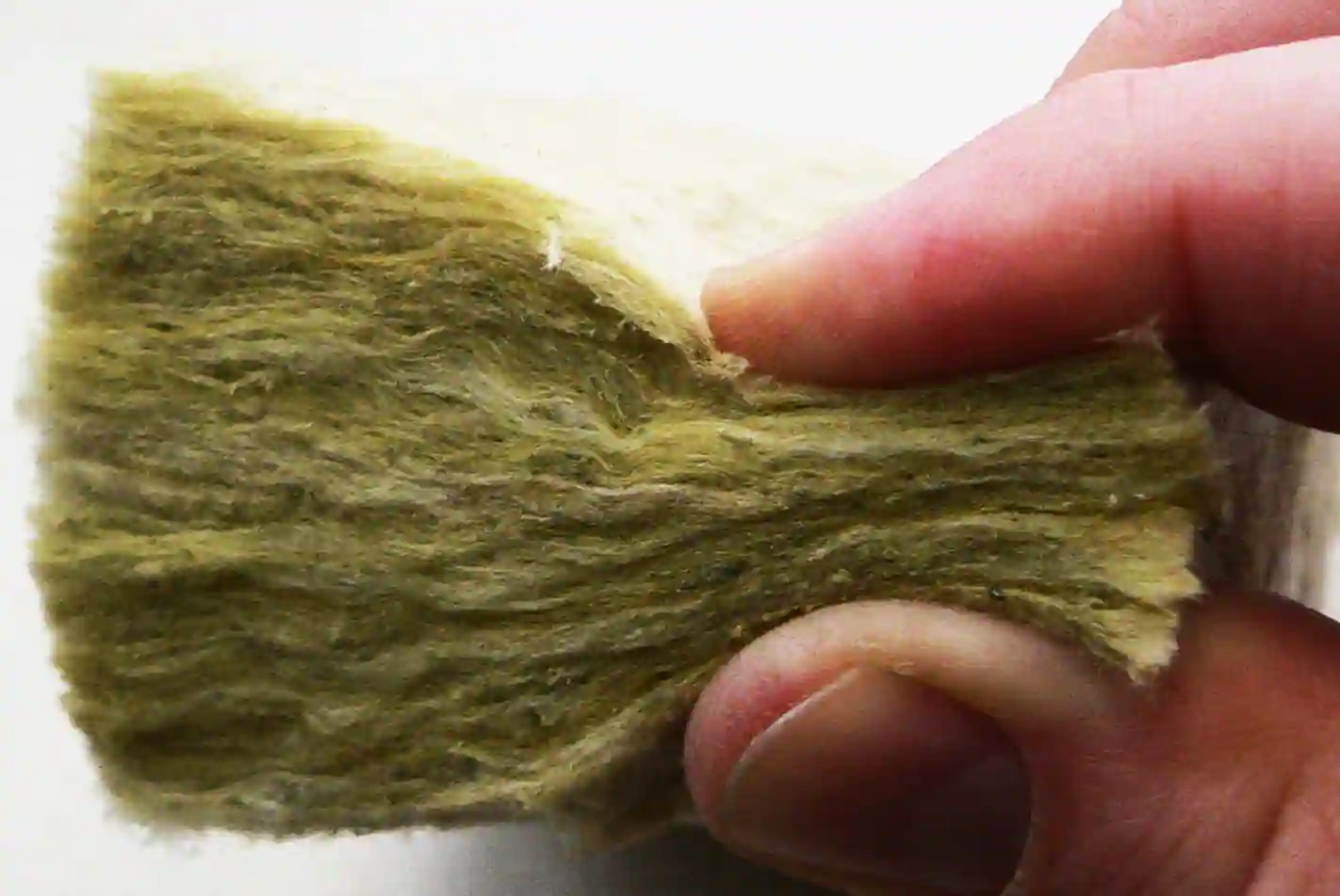Mineral wool r value is another important point when you will go with this insulation product to insulate the home. Insulation is an important key factor for getting high comfort in the home or any commercial building. We describe the situation, how is the condition of, a home without insulation, and what you can do to get comfortable in that house in our previous post.
Insulation plays a vital role in providing a comfortable environment in the house. A well-Insulated property should provide us with thermal efficiency and will become the reason to increase the higher energy bill for that you must insulate the home with the best insulation products.
There are some methods of installation of insulation like loose-fill and blown-in, batts and blanket-roll spray foam, foam in place, and reflective insulation which we have seen in the article Sustainable wall insulation. For insulating the walls and ceiling mostly used loose-fill insulation method in the 3 products available which are- Fiberglass, cellulose, and mineral wool insulation. In this post, we will look at a third of these, which is mineral wool insulation products. Let’s continue with reading.
As we all know higher quality insulation material with good and correct higher r valued insulation should be able to help in keeping the home comfortable along with low energy bills, it should also minimize the carbon footprint. That’s why it has essential to effective insulation material with higher r valued insulation material for insulating any property.
Nowadays, Mineral wool insulation is the most widely used insulation material in all types of insulation, so we are presenting this article to provide you with complete information about it so that it’s become easy to compare with other insulation products.
Types of Wool Insulation
Insulation is important but in the market, there is a rush of a variety of the types of insulation materials like- cellulose insulation, fiberglass insulation, Rockwool insulation, sheep’s wool insulation, mineral wool insulation, asbestos insulation, and some other insulation material. In all that wool insulation is widely used for insulation because of its good thermal conductivity. Wool insulation material is beneficial to insulate the walls, loft, or floor. For better performance of insulation, you have to need to increase the thickness of insulation along with the correct r-valued insulation material.
We will provide the all information about that in the following passage. Now in this section, we will share information about all types of wool insulation. Wool Insulation works as a good insulator and is available in different types and varieties with different r values. So, it shall be confused you which one is good and what is r value of that particular insulation material. This post can help you gain knowledge about the Types of wool insulation and Mineral wool insulation product and it’s r value.
Wool insulation is available in four different types that are-
- Glass wool insulation
- Sheep’s wool insulation
- Mineral wool insulation/ Rockwool insulation
- Natural hemp insulation
We try to understand more information about all these wool insulation types in short.
Glass wool Insulation
These types of wool insulation are mostly used to insulate homes. Glass wool insulation is made up of heating the glass and sand till it melts and then this mixture is spun at high speed with 1500 c. heat to get the fibers to form. To maximize its insulation properties you need to lay it in a thickness of nearly 270mm. Glass wool insulation comes in roll form so, you just unrolled it in a joist for installation. This insulation is itchy that’s why it’s not free to handle you need to wear a mask and hand gloves at the time of insulation . Glass insulation can provide an acoustic performance as well as its work as a resistance to fire.
Sheep’s wool insulation

Sheep’s wool has a natural insulation property. This sheep’s wool insulation helps to keep heat insight the home during the winter season and during the summer it helps to keep home
Cool, that’s why this insulation is known as natural and sustainable insulation. Sheep’s wool insulation is commonly and friendly used because it’s irritating less insulation material like fiberglass insulation or asbestos insulation.
Mineral wool insulation
Mineral wool is a fibrous insulation material where this insulation is also known as Rock wool insulation. They gave it mineral wool because it is made up of melting natural minerals like slag, rock, or stone on very high heat. Instead of glass the slag, stone, or rock melting and making it like cotton candy fibers is known as mineral wool insulation. We will describe this point in detail in the next passage.
Natural hemp insulation

Natural hemp insulation is known as very sustainable and handles to free as well as an environmentally friendly insulation product. This insulation same as sheep’s wool insulation. It has better and recommendable insulation properties. It is helping to keep your home cool during the summer or hot season and warm during the winter season. It’s safe to touch because of its irritation-free quality.
Mineral Wool Insulation | Mineral wool r value | Mineral wool insulation benefits
The above insulation product is categorized into Types of wool insulation. Mineral wool insulation is well-known and the best insulation material. It is widely used to insulate the office, transport things, and build to achieve thermal efficiency and an acoustic environment with fire protection. This insulation was oriented in the U.S. in the year of 1875s.
Mineral wool insulation is produced by melting the stone, slag, rock, or glass on very high heat. To melt this natural mineral mostly coke is used as fuel to melt minerals and make like cotton candy. This insulation has a fibrous and glassy substance from mineral products like stone, rock, glass, and slag.
Mineral wool insulation is divided into two groups that are- Stone wool insulation and Glass wool insulation. Stone wool produced by melting rock means a natural igneous rock or slag or stone. Glass wool insulation product is made by melting the glass and making it like a fiber. Mineral wool is produced by melting glass. The proper substance of this material is a set of mineral fibers. There is another category of this insulation product, Mineral Fiber and this term or category apply to non-metallic inorganic fibers.
What is the r value of Mineral Wool?
Mineral wool insulation is a better insulation product because it has a higher R-value. We know that high-quality insulation material with a higher R-value should be able to keep your home very comfortable with a lower energy bill. Mineral wool insulation should provide us with thermal energy efficiency in a very low carbon footprint with the ability of reduction to sound.
Many homeowners like to use cellulose or any other product of insulation but in the rush of all that mineral wool, a new type gained popularity among the people because it has excellent and large durability, and high r-value, as well as this insulation product, is friendly to use and known as environmentally sustainable.
Now the question arises: What is the r-value of mineral wool insulation? According to our study of insulation material and products, Mineral wool insulation is available in two forms of insulation material Batt in that blanket and roll forms available and another one is Loose fill insulation types.
In loose-fill form, this insulation can offer nearly 3.0 to 3.3 per inch of thickness.
Rock wool insulation has a 3.1 – 3.3 r value per inch for insulating the walls and ceilings.
Mineral wool insulation r value per inch in the Batts form has an r-value of R-3.14 to R-4.00 r value per inch.
Mineral wool insulation in Blanket roll insulation has an r-value of R-3.1 to R-3.3 per inch.
Mineral Wool Insulation Benefits
The following are the most well-known benefits of the use of Mineral wool insulation to insulation.
- Mineral wool insulation improves the indoor climate and outdoor air quality for a healthier environment.
- This insulation product is known as fire safety.
- This insulation has soundproofing quality. It acts as a noise barrier.
- Mineral wool insulation material saves energy bills and reduce emission.
- This insulation can able to enhance your comfort and well-being.
- Mineral wool insulation can work long-term means it has driven a good performance.
These all are benefits of mineral wool insulation, you should get these all benefits and make your home more comfortable by using this insulation material and product.
Final Thought of Mineral Wool R Value
In the rush of all insulation products, mineral wool is known as the best insulation product, if you choose mineral insulation, it will be providing more benefits with a higher R-value. It’s a very safe insulation product with soundproofing ability so, it’s a less acoustic invasion compared to other insulation products.
Mineral wool insulation has other valuable features like moisture resistance, dust-free product, and high-level fire-resistant quality. It’s fiber insulation made by melting natural minerals like slag, rock, and stone instead of glass. That’s why this product I knew as an excellent home insulator.
This insulation product is available in Batts and Loose- fill insulation forms with an r-15 r value. If you want to insulate your property safely and achieve more advantages of investment in insulation then you can go with this insulation for high comfort with a higher R-value.
What is the R factor of mineral wool?
An indicator of a material’s capacity to thwart heat transfer is the R-factor, often known as the thermal resistance or thermal insulating value. An insulation material called mineral wool typically has an R-factor that varies based on its density and thickness.
Mineral wool insulation is a better insulation product because it has a higher R-value. We know that high-quality insulation material with a higher R-value should be able to keep your home very comfortable with a lower energy bill. Mineral wool insulation should provide us with thermal energy efficiency in a very low carbon footprint with the ability of reduction to sound.
Many homeowners like to use cellulose or any other product of insulation but in the rush of all that mineral wool, a new type gained popularity among the people because it has excellent and large durability, and high r-value, as well as this insulation product, is friendly to use and known as environmentally sustainable.
Mineral wool insulation’s R-factor (R-3.0 to R-3.3/inch) can vary from 3.0 to 3.3 per inch of thickness. This indicates that each inch of mineral wool insulation has thermal resistance corresponding to roughly R-3.0 to R-3.3.
In loose-fill form, this insulation can offer nearly 3.0 to 3.3 per inch of thickness.
Rock wool insulation has a 3.1 – 3.3 r value per inch for insulating the walls and ceilings.
Mineral wool insulation r value per inch in the Batts form has an r-value of R-3.14 to R-4.00 r value per inch.
Mineral wool insulation in Blanket roll insulation has an r-value of R-3.1 to R-3.3 per inch.
It’s vital to remember that the exact R-factor can change based on the type and brand of mineral wool insulation used. For accurate information on a specific mineral wool insulation product, it is preferable to refer to the product documentation or get in touch with the manufacturer. Manufacturers typically publish thorough specifications for their products, including the R-factor.
Do let us know how you feel about this information by commenting.
Like our Facebook page and follow for other updates like this.

